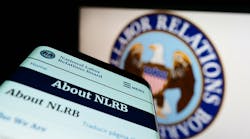Finding the right person to fill a job opening is the most important decision that a manager makes, but it is not an exact science. Taking a few pages from the notebooks of experts can help managers select the right people and create a more productive workforce.
Interviewing and hiring techniques are specialized skills. Some, not all, of these skills can be learned. By participating in the hiring process—the sooner the better—the manager has a more influential say in who will be working for him or her. When finding and selecting the right job candidates, managers should not feel restrained by unrealistic pay constraints or shy away from making gut decisions.
Hiring managers who go it alone often begin the process by networking or paying a bounty to employees who find someone to fill a job opening. While this method might save money on search fees, there's no guarantee the candidate will be the right person for the job.
Finding the right people can be as much art as it is having the right skills. "When they're looking to fill a job opening, my suggestion to clients," says Dan Charney, director, packaging and material handling, Direct Recruiters (Cleveland), "is to find some person within the company who already possesses the traits or skills they're looking for." His suggestion might sound like piracy of one department for another, however that's not the intention.
"You can benchmark that person through interviews, checking their resume or discussing their skills with other managers," he explains. By looking at the traits of successful people already within an organization, the manager gets a better picture of the kind of person who will fill the current job opening then use that information to the search for candidates. Cloning is still not an option, says Charney.
Skills vs. personality
Hiring the right person involves compromises. "Any compromises are probably reflections of a company's culture," says Charney. "If a company has a great education program, it might be willing to take on a candidate whose personality fits best with the rest of the team." If a company does not have a great training program, it is more likely to opt for a person's skills and forgive quirks in the personality.
"We refer to [this compromise] as a 'burning platform' issue," says Tom McKenna, president, Nevasink Logistics, Middletown, N.J. "If the job is 'theoretical' and won't be filled for six months, you can afford to take a closer look at candidates. If the need is immediate, you go with the skills."
If having the right team player, and teaching that person the job has worked in the past, it may work again. If technical skills have always been critical, it might mean selecting a more experienced person.
"When we're building a team for our logistics clients," says McKenna, "more experienced people make a much better impression than some young guy with an MBA and no experience. There's a big difference between having 'exposure' to a job and having experience on a job."
Nevasink Logistics is a group of about 1,000 logistics experts who do supply chain and logistics contract work through a virtual network. They do everything from software implementation to assist with third-party logistics services selection.
"We're often called on," says McKenna, " to sit down with a client company and write up a job description."
In any circumstance the job description can be key to getting the right person. It's important for the hiring manager to either create that description, or work closely with HR or outside advisors. The manager should focus on the specific skills required for the job, while the HR person will cover the legal bases. HR may sometimes want to look for someone with multiple disciplines who can fill several jobs, thus saving the company from the need to hire two people.
"It's important not to be shortsighted," cautions McKenna, "and let cost-containment enter the hiring process." He adds that it's questionable thinking to believe you can find people highly skilled in several disciplines who can do several jobs for the cost of one.
"Being able to distinguish characteristics [that make one candidate preferable to another] is part of the interviewing process and part of the manager's job," says J. P. Magill, vice president operations, Achilles Group (Houston). His firm is a third-party human resources management company specializing in supply-chain clients.
"HR should be behind the scenes," adds Magill. "Its role should be as a back-up to the hiring manager. Only the hiring manager knows if the candidate has the skills required for the job."
Detailed job descriptions are particularly important when the job will involve working with computer software. Frequent revisions to warehouse management programs, for example, can make a person's credits, as listed on a resume, obsolete in just a couple of years.
Another reason to have the material handling manager involved at the early stages of the hiring process is well known to anyone who was ever been turned away from the perfect job: some people interview better than others, even if when they don't have the right personality or the necessary skills. The hiring manager is in the best position to assess what is smoke and what is flame.
Where to look
While networking with peers helps to put a sharper point on the job's particulars, and it might produce a suitable candidate, companies often have to look outside.
"For the professional looking for a job, or someone looking for the right person," says Magill, "the starting place today is the job boards."
He's referring to Internet jobposting services such as Monster.com and the many niche job boards, like logjob.com for people in the logistics business, as well as those operated by trade associations. People seeking jobs via the job boards are perceived to have technical savvy and skills important in virtually all jobs.
Whether the big boards or the niche boards should be used for hunting and gathering is a judgement call. A company can look for people with specific skills on the niche board, whereas the big boards draw more listings of candidates with a wider range of skills.
"The job boards have become an automatic screen," says Magill. " Executive jobs, these days, are not suited to newspaper advertising. You have to look everywhere."
He cites a recent effort his company made on behalf of a distribution client when it resumed business in the wake of hurricane Katrina. It had been caught short of employees. Magill opted for unusual sources such as churches in areas where evacuees had been taken, as well as the Federal Emergency Management Agency and work commissions in areas removed from the disaster.
Hiring squad
Once candidates for a job have been identified, be it through an HR vetting process, a third-party source or the recommendations of co-workers, a team interview can be helpful. Others may think of qualifying questions the hiring manager might not. It also gives current employees the opportunity to assess the skills of any future team member. The end result can produce a person with the right combination of skill set and personality.
Another benefit of the team interview is that the candidate does not waste time answering the same questions for different people. As long as such an interview remains conversational and does not become a feeding frenzy, the information derived can be revealing.
Usually, the more disarmed the candidate is, the better the information he or she will reveal. "The best technique I know, and what I teach," says Magill, "is to ask questions that are a mile deep and an inch wide."
By this he means drilling down within a specific silo of information, going where the candidate has not prepared to go. "Candidates and interviewers show up with what I call their 'cocktail party' speech," he explains. "'Why do you want to work here? Where do you want to be in five years?' Those kinds of things."
Get rid of the shotgun approach, Magill advises, and replace it with a rifle. Mixing metaphors, he says, "If you really want to get under the hood, you start dissecting a single point. Get below the candidates comfort level and you bring the real person to the surface."
"The candidate should be given the opportunity to give pros and cons for any example, or answer he gives. He needs to explain how he would go about a specific function, not whether he can do a job," McKenna adds.
Managers should not forget who should does the most talking during an interview. Obviously, the candidate should talk so that opinions come to the surface along with job knowledge.
Recruiting firms that specialize in a particular industry can be a resource for finding, interviewing and hiring the right person for a job.
"We often work directly with the material handling manager," says Charney, "because we have a network they can't access, and might rarely need." As a measure of success, he reports that 75% of the people his company has placed are still on the job four years later.
In the end, the final hiring decision and job offer should be made by the manager to whom a job candidate will report, not the HR department. Magill says it best in his Texas drawl: "He who has the money has the power." The employee's loyalty and respect will go to whoever controls the money.
"There's no questioning authority of the material handling manager who calls the candidate and says, 'Here's the job and here's what I'm offering you,'" he explains.
Knowing how to interview and hire job candidates is not just for human resource professionals.




